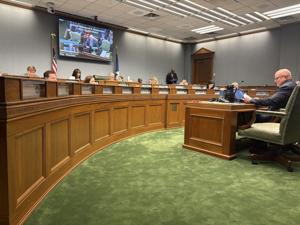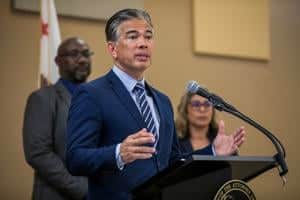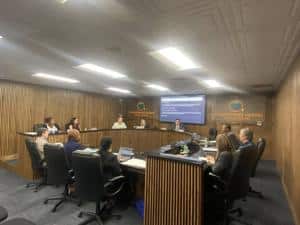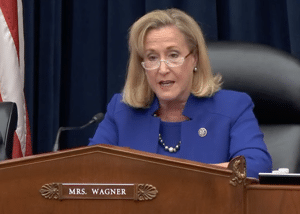(The Center Square) – President Donald Trump delivered remarks at a rally in Michigan Tuesday evening, his 100th day in office of his second term.
Trump touted his progress cutting federal waste, “protecting workers, restoring the rule of law” and ending illegal immigration as part of “the most successful 100 days in the history of any administration.”
“Instead of putting China first, I’m putting Michigan first and I’m putting America first,” Trump said at the Macomb County Rally.
“In 100 days we have delivered the most profound change in Washington in 100 years,” Trump said, adding he is ushering in “the golden age of America,” a nod to his inauguration speech in January.
Trump took time to attack former President Joe Biden, questioning how he ever got elected. He spent much of his speech touting his wins on immigration policy. The Center Square Voter’s Voice poll found immigration is the issue voters are happiest with the president.
“I banned all welfare to illegals, and I signed an order that will end automatic citizenship for the children of illegal aliens,” Trump said before touting his signing of the Laken Riley Act, a law that requires the Department of Homeland Security to detain illegal aliens charged with a crime after 22-year-old Riley, a nursing student, was killed by an illegal alien while jogging.
“For years, Joe Biden and the media told us that stopping the flood of illegal immigration was absolutely impossible,” Trump said. “He said it was impossible. He didn’t know what the hell anybody was talking about.”
“But it turned out that all we needed was a new president,” Trump added, repeating a favorite line of his State of the Union address.
Trump said his immigration policies would be more effective if not for the courts blocking him.
Trump blasted “a handful of radical, communist judges” saying they are infringing on authority delegated to the president.
He also attacked Democrats for fighting his effort to deport migrants, saying he was elected in every swing state and won the popular vote because of immigration more than any other issue.
“The last administration engineered a massive border invasion” that allowed “gangs and cartels to infiltrate our communities and rape and murder our citizens and that is being nice about it,” Trump said.
Trump also hit Democrats, accusing them of cheating in elections and saying he actually won Michigan in 2020, a state he lost to then-President Joe Biden.
Trump attacked liberal media coverage as well as the pollsters who have reported his approval rating has fallen, saying they interview more Democrats than Republicans.
The Center Square Voters’ Voice Poll, released last week, also shows more voters disapprove of the job Trump is doing than those who approve. The poll surveyed 2,527 registered voters. Of those respondents, 1,089 were Republicans, 1,187 were Democrats, and 251 were “True Independents.”
In the speech, Trump touted stripping the security clearances of the intelligence officials who said Hunter Biden’s laptop was Russian disinformation, a claim that was later debunked.
He also touted his bans of critical race theory and transgender military members, saying recruitment has since soared.
The president promised major tax cuts in the future and promised to defend Medicaid and achieve “military supremacy.”
The president’s speech was wide-ranging and often off the cuff, reminiscent of his time on the campaign trail. He went on to tout his “drill baby, drill” energy policy and his 25% tariff on foreign automobiles, saying it would revive auto manufacturing in Michigan.
“We have been beaten up so badly by the countries…” he said.
Trump pointed to tens of billions of dollars in domestic investment promised by companies like Apple, Amazon, Johnson and Johnson and more.
Trump’s tariffs have mostly been put on pause while his team negotiates trade deals, though his 145% tariffs on China remain in place.
“You’re going to make the cars,” he told the crowd.
“We really don’t want your cars,” he added, speaking to other nations.
“The president stands up for Main Street, not Wall Street.”















































